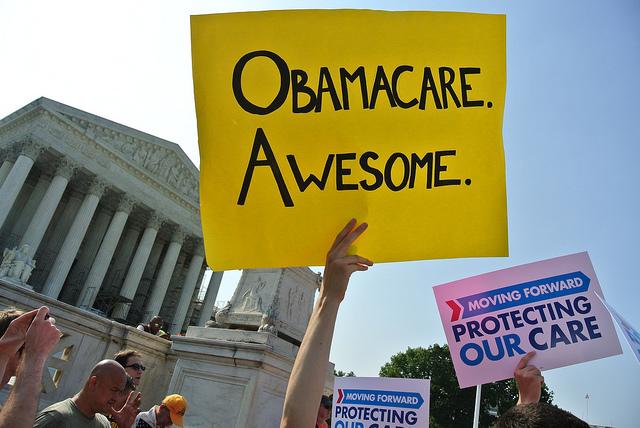By Connor Hamill, political columnist
One of former President Barack Obama’s crowning achievements, the Affordable Care Act (ACA) is the bane of most GOP members’ existence. Passed in 2010 and upheld in a 2012 Supreme Court decision, the ACA aimed to give more Americans access to affordable health care and, according to the Healthcare Marketplace website, around 21 million Americans stand to lose their health insurance if it’s repealed. Satisfied with their work, Democrats patted themselves on the back and assumed that the issue had finally been settled. But few were expecting the coming storm that was the 2016 election.
Throughout the campaign trail, then-Republican-nominee Donald J. Trump was very vocal, to say the least, about his disapproval of law, calling it at times a “disaster” and asserting throughout his campaign that he would replace it with something better. Of course we on the left all laughed at the time, because Hillary Clinton was going to win, right?
Fast forward to Nov. 9, 2016. The man we had been comparing to a Cheeto for the past couple of months was now going to be the Cheeto-in-chief, with a Republican Congress to boot. Clutching our favorite pictures of then-President Barack Obama, Sen. Bernie Sanders (I-Vt.) and Hillary Clinton close to our chests, we all suddenly realized that our perfect socialist society where everyone had affordable health insurance might be in jeopardy.
November turned to December, and December to January. While we were all begging Obama not to leave, the Republicans returned to Capitol Hill, ready to repeal and replace.
The stage was set. The bill S.Con.Res.3, a budget resolution that set the congressional budget for the U.S. government for 2017 was passed by both the House and the Senate. But more importantly, by diverting funds from ACA programs, it was the first step toward repealing the ACA. Republicans popped champagne, a single tear rolled down Obama’s face and liberals all over were dismayed that they had to start worrying about government things before Trump even took office. But the question remained: What does this mean for the ACA?
In short, the ACA isn’t going anywhere yet. According to CNN, GOP lawmakers can only mess around with the fiscal aspect of the law but can’t touch its other aspects, like children staying on their parents insurance plan until they’re 26 without outright repealing the law. CNN also says that “any replacement measure unrelated to the budget will have to clear 60 votes in the Senate” and Republicans only hold 52 seats.
Currently, there’s not even a bill in Congress that aims to make any substantial changes to the ACA. That’s not to say there won’t be one, but I think GOP lawmakers will find that fixing the ACA while dealing with public backlash will be a pretty tough juggling act they’ll want to take their time on.
So where does that leave us? We’ve run out of road on the path we were on, and before us lies a seemingly endless array of options. The important thing to remember though is that nothing is set in stone yet. This is where our American democracy kicks in.
We as a people need to let our representatives in Congress know what we want. If you don’t like what’s happening in Congress, give your representatives a call. Tell them a story of someone you know who just got health insurance thanks to the ACA and wouldn’t be able to afford it otherwise.
Conversely, if you love what’s happening in Congress, call your representatives. Democratic senators could use a push to improve the law, too. The ACA is far from perfect—a New York Times article found that premiums have risen for buyers in some states, while it has fallen in others.
If we don’t communicate with our lawmakers, they won’t know what we want. And if they don’t know what we want, they might pass some laws with which we wholeheartedly disagree. In short, if people from both sides of the aisle tell their congresspeople what they want, our democracy will be more representative and work better for the American public.
What I and many other people oppose is repealing the law with no plan in mind, leaving people who had just received health insurance in the dust again. If Republicans can make the law work better and at a lower cost, who wouldn’t want that? All we ask is that lawmakers let us know what they plan to do before any changes are made. We all want the best for our country, and if we work together, maybe we can find a better solution that works for everyone.
Photo courtesy Will O’Neill, Creative Commons









